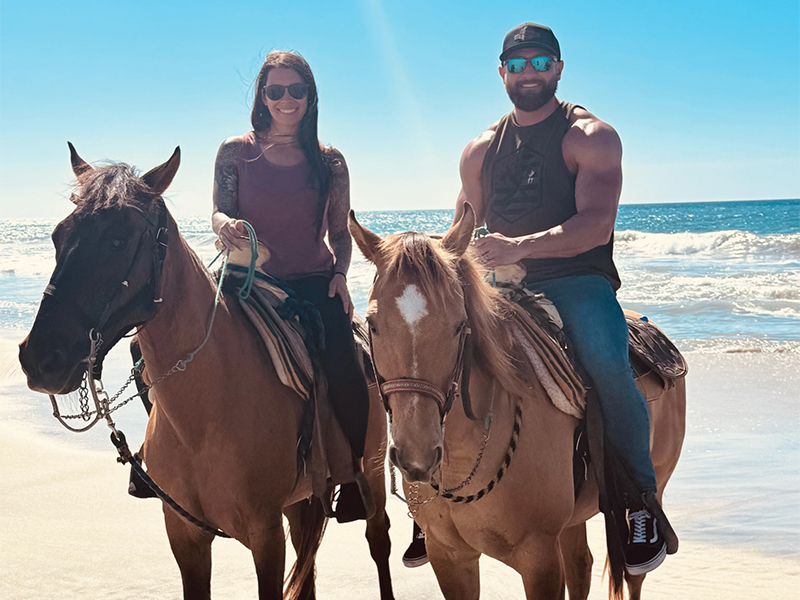|
 |
|
Quick Facts
Education: 2009, Bachelor of Science in Nursing, Oregon Health & Science University, Klamath Falls, Oregon
Personal:
Age: 38
Residence: Medford, Oregon
Place of birth: Ashland, Oregon
Family: married to husband Steven
First job: Courtesy clerk at Safeway
One-word self-description: Chameleon
Favorite hobby: Horseback riding
“Happy” place: Beach
Three people, living or dead, you would like to have dinner with: Jesus Christ; Florence Nightingale; President Donald Trump
|
“I had already gone through the whole process as a patient, so I knew what to expect,” Thompson says. “Most people are nervous. They have never had surgery or only something minor. I could tell them, ‘You will meet the doctor and anesthesiologist, they will walk you back, it will be cold, and you will feel anxious, but someone will be with you the whole time.’ Helping people feel at ease is what drew me to periop and has kept me here.”
Thompson spent nearly six years at her first ASC, a large, five-operating room (OR), multispecialty center in Oregon. She initially worked as a staff nurse in preop and post-anesthesia care unit and moved steadily into leadership, eventually becoming nurse manager. “Every job I have had, I just kind of get pushed into leadership,” she says. “People hesitate to make decisions, and I am usually the one who says, ‘We should go in this direction.’”
In mid-2021, Thompson stepped into the role of administrator and clinical director at Crater Lake Surgery Center, a two-OR facility specializing in pain management and small spine procedures. The smaller size of the center, she notes, requires staff to be versatile and willing to take on a range of responsibilities. “That variety keeps people engaged and growing.”
The setting also plays to Thompson’s natural strengths. “I am resilient, flexible and ready to help wherever I am needed,” she says. “Those qualities come from years of hands-on nursing experience in fast-paced, high-pressure environments where adaptability and teamwork are essential.”
She credits much of that mindset to her father, Ted, who worked multiple jobs while always being present for his family. “Watching him taught me to step in, figure things out and do what needs to be done,” Thompson says.
Over time, experience also taught her the importance of boundaries. While working in dialysis, she was quick to volunteer for extra shifts and responsibilities, often at the expense of her own well-being. A colleague’s advice during that period left a lasting impression: constantly saying yes can lead to burnout. “That stuck with me,” Thompson says. “You cannot pour from an empty glass. To lead effectively and be the best nurse, you have to take care of yourself.”